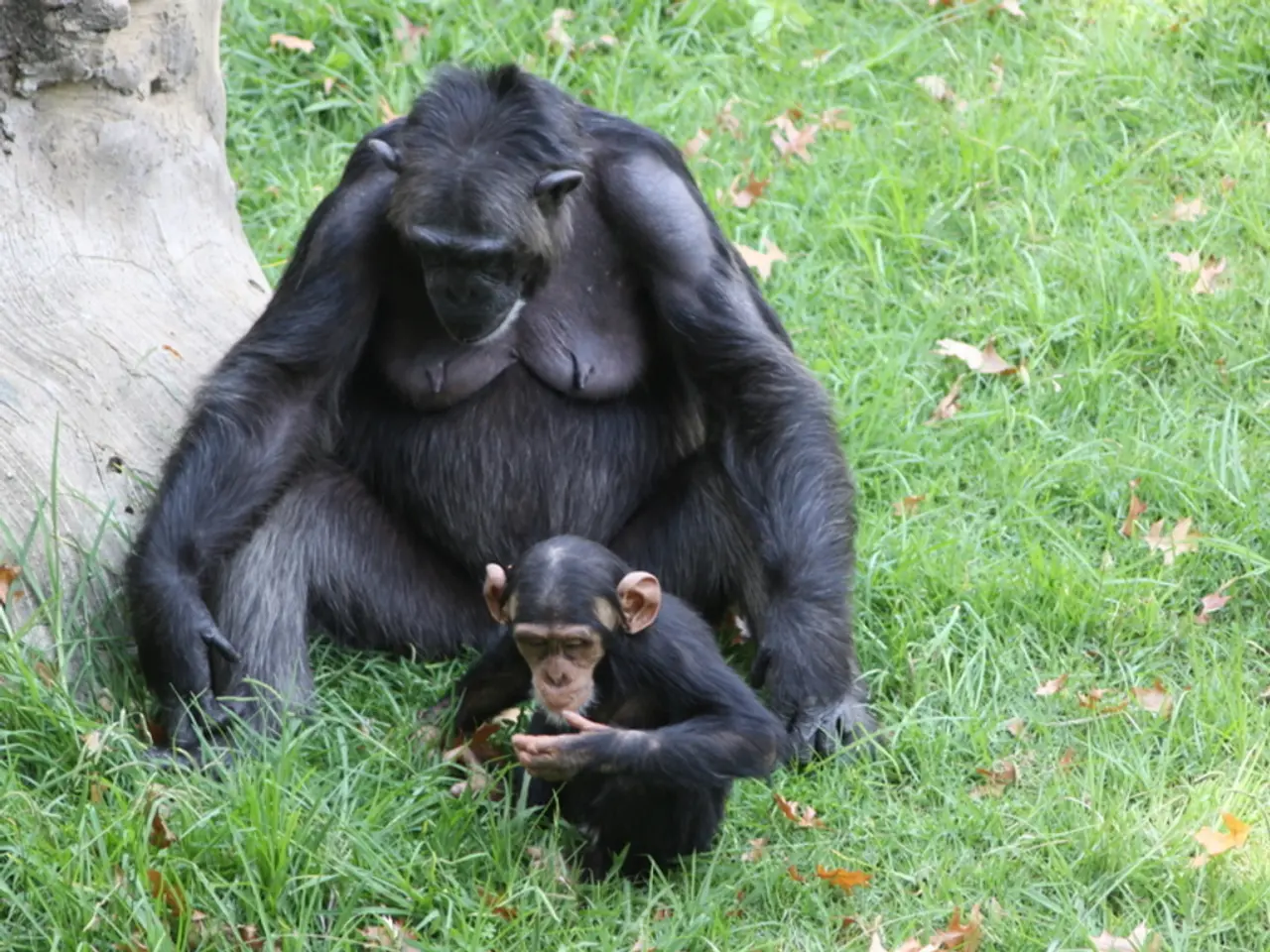Drunken Ape Caught: Potential Evolutionary Links Suggested for Social Consumption of Alcohol in Chimps
In a groundbreaking study conducted in the lush landscape of Cantanhez National Park in Guinea-Bissau, researchers have uncovered fascinating insights into the evolutionary origins of human social drinking. The focus of this study was on wild chimpanzees and their consumption of fermented African breadfruit.
The findings reveal that these wild apes regularly ingest small amounts of ethanol through this dietary source. This regular exposure to alcohol has likely exerted significant evolutionary selective pressures on metabolic pathways, enabling the chimpanzees to process alcohol efficiently. Remarkably, this metabolic adaptation is shared with humans, suggesting a deep evolutionary origin of alcohol tolerance predating human culture.
The behaviour of social scrumping—sharing and cofeeding on fermented fruits—among chimpanzees may have served as a precursor to complex social practices involving alcohol in humans. In the same way that communal fruit feeding fosters social bonding among chimpanzees, alcohol consumption acts as a social lubricant in human societies, enhancing group cohesion and identity through shared rituals like feasting and drinking ceremonies.
This research bridges the gap between behavioural ecology and molecular genetics by demonstrating that the ability to metabolize ethanol efficiently conferred fitness advantages in resource acquisition and social complexity. The findings support the idea that early interaction with fermented fruits shaped not only humans’ physiological adaptation to alcohol but also the evolution of social structures and communal practices integral to human evolution.
In summary, the study of alcohol consumption and social bonding in wild chimpanzees suggests that ethanol exposure through diet was a significant ecological factor in primate evolution, selecting for genetic adaptations seen in humans. Social scrumping behaviours provided a foundation for the evolution of shared drinking and ritualistic feasting in human societies. These behavioural and genetic adaptations illuminate how metabolic and social traits co-evolved, giving critical insight into the origins of human sociality and cultural practices involving alcohol.
This understanding enriches evolutionary biology by linking dietary ecology, genetics, and social behaviour across primates and humans. The research on chimpanzees consuming and sharing alcoholic fruits can help bridge the gap between our understanding of primate evolution and human social behaviours. The study highlights the potential connections between human and chimpanzee social practices, particularly those involving alcohol consumption.
The Cantanhez National Park in Guinea-Bissau serves as a unique location for the study of chimpanzee behaviours and social structures. Researchers can utilize these observations to better understand the complex interplay between biology, environment, and social practices in primates. The study underscores the importance of continued research into the behaviours and social structures of chimpanzees in the wild.
Read also:
- Stem cells potentially enhancing joint wellness and flexibility during aging process?
- Obtaining Ozempic: Secure and Legal Methods to Purchase Ozempic Online in 2025
- Bone and Cartilage Disorders: Categorizations, Signs, Remedies, and Prognosis
- Home-Based Methods and Natural Remedies for Managing Atherosclerosis






